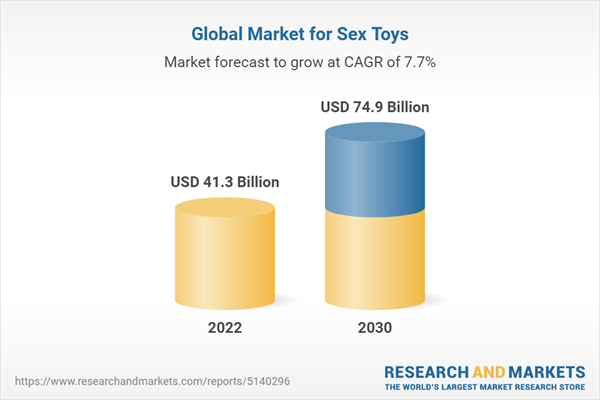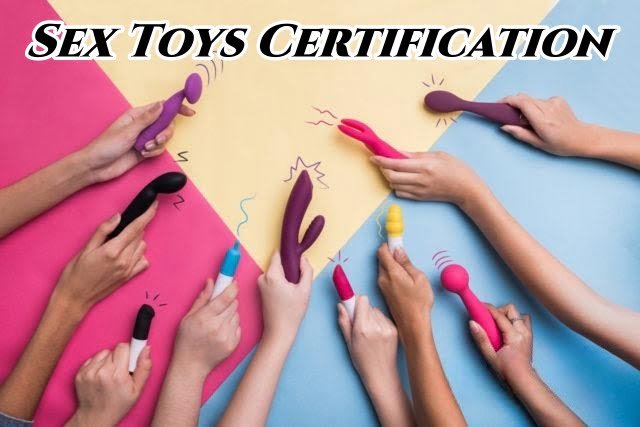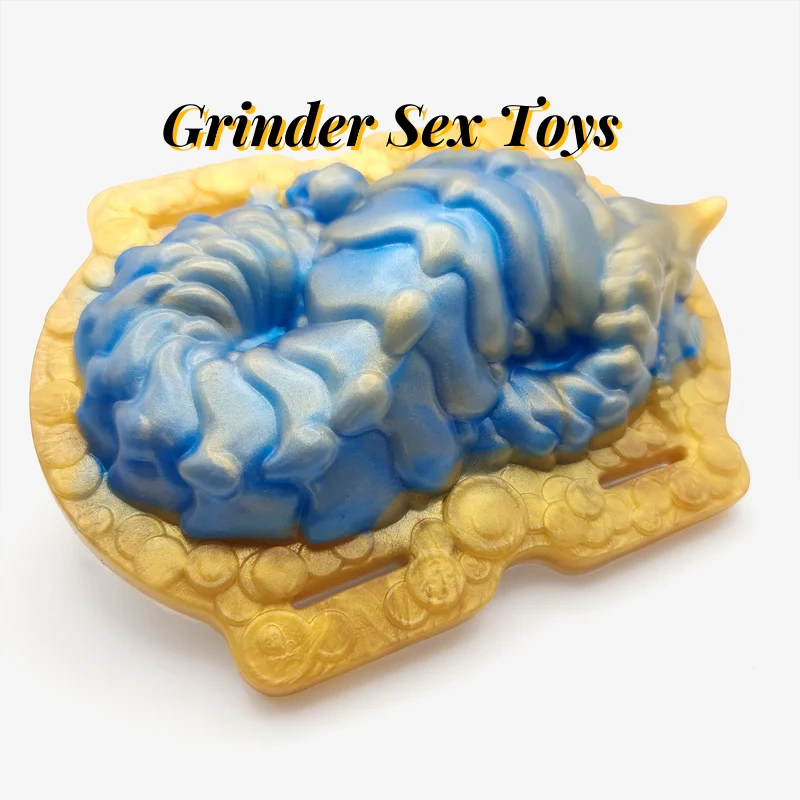Inhaltsverzeichnis
Einführung:
Sexual needs are among the most fundamental human requirements. Jedoch, due to prevailing societal norms, sex remains a taboo topic, especially in more conservative countries. Sex toys have emerged as a solution, addressing various physiological and psychological concerns and enhancing sexual relationships, leading to improved overall well-being. According to research data, the global sex toy market reached a sales volume of $41.3 Milliarden in 2022, with a projected growth to $74.9 Milliarden von 2030.
As attitudes towards sex toys evolve and the sex toy industry continues to grow, more and more people are becoming accepting of and willing to explore these products. Jedoch, when it comes to using sex toys that come in direct contact with our bodies, safety is of paramount importance. In diesem Artikel, we will delve into the safety standards and certifications surrounding sex toys, as they are essential aspects that need to be considered for everyday use.
Why is certification of Sex Toys necessary?
1.The safety of sex toys is of utmost importance as they come into direct contact with the human body. This includes inspecting the materials, Design, and manufacturing processes of sex toys to ensure they meet safety standards and do not pose health risks to users.
2.Different countries have strict legal regulations for sex toys, and local market certifications allow for legal production and sales of sex toys in those regions.
3.As consumers of sex toys, we tend to trust products that have undergone safety certifications. Obtaining sex toy certification guarantees the quality and safety of the products. Consumers can check for relevant certificates while making purchases and opt for products that have passed safety certifications, reducing the presence of substandard products from unscrupulous sellers.
4.Obtaining sex toy certification can effectively protect a company’s image and minimize the presence of counterfeit products. It helps to prevent damage to the brand reputation due to issues related to product quality or safety.
Certification standards for sex toys in different countries/regions
1. European Union (EU)

Allgemein, in the European Union (EU), sex toys are subject to CE certification standards, which have strict requirements for safety, health, and environmental aspects. Specific standards include the use of materials for sex toys, safety of built-in electronic components, and limitations on harmful substances. The specific CE testing standards are as follows:
- EN IEC 55014-1:2021
- EN IEC 55014-2:2021
- EN-IEC 61000-3-2:2019
- EN 61000-3-3:2013+A1:2019
2.United States(US)
According to Deborah Kotz, a press officer for the FDA, the United States FDA currently does not regulate sex toys intended for non-medical use. Jedoch, currently, American consumers tend to favor products that have undergone the following certifications:
FCC Certification: Ensures that electronic products, including certain sex toys with electronic components, comply with Federal Communications Commission regulations for electromagnetic interference.
UL Certification: Verifies the safety and compliance of electrical and electronic components used in sex toys, ensuring they meet Underwriters Laboratories (UL) Sicherheitsstandards.
Toxicology Testing: Conducted to assess the potential toxic effects of materials used in sex toys on human health.
ASTM Certification: Compliance with American Society for Testing and Materials (ASTM) standards, which are industry guidelines for sex toy safety and quality.
CPSC Certification: Sex toys must meet the safety standards set by the Consumer Product Safety Commission (CPSC) to ensure they are safe for consumers.
Phthalate Testing: Involves testing for the presence of phthalates, a group of chemicals often used in sex toy manufacturing, to ensure they meet safety regulations.
California Proposition 65 Testing: Ensures that sex toys do not contain harmful substances listed under California Proposition 65, a law that requires warnings for products with potentially hazardous chemicals.
3.China (CN)


China, Der weltweit größte Produzent und Exporteur von Sexspielzeug zu sein, haftet an CCC (China Obligatorische Zertifizierung) Und CMC (Metrologiezertifizierung in China) Für Compliance. Diese Zertifizierungen umfassen die Produktstruktur, Materialverbrauch, und Sicherheitsaspekte der elektronischen Komponenten von Sexspielzeugen, Sicherstellung ihrer Qualität und Sicherheit.
4.Japan(JP)

Japan, renowned for its erotic culture, maintains stringent requirements for sex toys. To enter the Japanese market, sex toys must adhere to the PSE certification standard, a mandatory safety certification for electronic products, ensuring compliance with Japan’s electrical and raw material safety standards.
5.South Korea(KR)

The KC certification covers various electronic and electrical products, including sex toys that contain electronic components. Manufacturers are required to conduct testing and evaluation of the products before sale to ensure compliance with South Korea’s electrical safety requirements and radio wave electromagnetic compatibility regulations. After obtaining the KC certification, the products can bear the KC mark, indicating their compliance and eligibility for legal sales in South Korea.
6.Middle East and Africa
Exporting Sex Toys to Middle East and African countries requires obtaining the Certificate of Conformity (COC) certification. The Certificate of Conformity (COC) for sex toys refers to the “verification of compliance with mandatory product certification requirements” and is also known as the “Product Certificate of Compliance.” This certificate is issued by a government or recognized certification body to confirm that sex toys meet the specific country or region’s legal, regulatory, and safety standards.
It is important to note that certification standards for sex toys in each country or region may be subject to adjustments over time. Some countries or regions may also accept internationally recognized certification standards ISO 3533.
For specific information on the certification requirements of a particular country, you can contact us for further details.
How to obtain certification for sex toys?
The certification process for sex toys
Vorbereitung: The company needs to gather all the required documentation for certification, including product specifications, material descriptions, and manufacturing processes for sex toys.
Select a Professional Certification Body: Choose a specialized and accredited certification agency.
Product Testing: Conduct thorough testing of the sex toys to ensure compliance with safety, quality, and regulatory standards.
Audit and Evaluation: The certification body reviews the gathered documentation and test results to assess compliance.
Issuance of Certification: Upon successful evaluation, the certification body issues the certification certificate for the sex toys.
Supervision and Maintenance: Professional certification bodies regularly monitor and inspect the manufacturer’s production processes to ensure continued compliance with certification standards.
Certification standards for sex toys
The certification of sex toys typically involves testing the following aspects:
Safety of Sex Toys: This includes assessing the safety of materials used, product design and structure, as well as the safety of electronic components.
Quality Standards: Allgemein, local market regulations for sex toys’ production quality are referenced, or international quality requirements are followed.
Harmful Substances Testing: This involves checking for heavy metals, harmful gases, and their potential impact and risks on the user’s health.
Environmental Standards
Compliance Requirements for Sex Toys
Why manufacturers need to apply for sex toys certification?
- Obtaining sex toys certification allows manufacturers to legally and compliantly enter specific markets.
- Certification acknowledges the quality of sex toys produced by manufacturers, leading consumers to trust certified products more.
- Sex toys certification effectively safeguards the legitimacy of products, reducing the potential legal risks or fines and protecting the reputation of manufacturers.
- To attain certification, sex toys manufacturers need to improve or optimize product design, material selection, and production processes, thereby enhancing production efficiency.
Zusammenfassend
Sex toys certification not only enhances manufacturers’ competitiveness and brand image but also opens up more business opportunities and market prospects for them. Active participation in certification is a crucial means for manufacturers to gain consumer trust and lay the foundation for sustainable development. Certification not only benefits manufacturers themselves but also concerns consumer rights and the industry’s reputation. daher, we call upon sex toys manufacturers to actively engage in certification, ensuring products comply with relevant standards and regulations, and providing users with safe and reliable products, thus driving the entire industry towards higher quality and healthier development.








